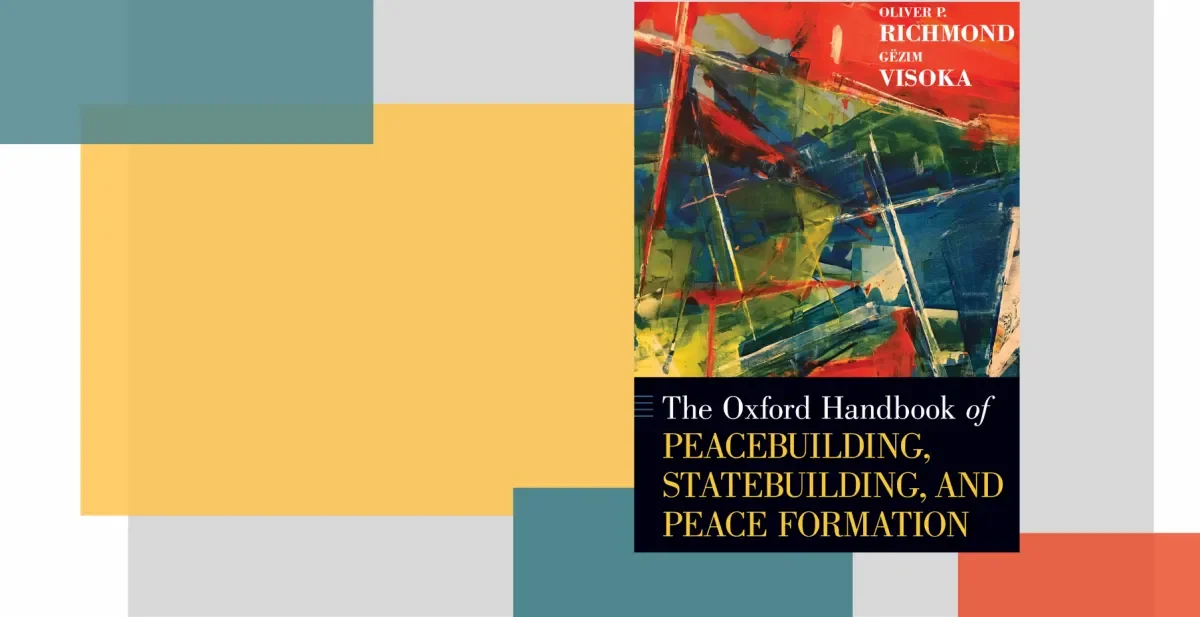

Understanding the track record of peace-building and state building
Peacebuilding and statebuilding have become the main approaches for preventing, managing, and mitigating global insecurities, dealing with the humanitarian consequences of civil wars, and expanding democracy and neoliberal economic regimes. But what is their impact?
DCU’s Gëzim Visoka and Oliver P. Richmond from the University of Manchester are co-editors of the new Oxford Handbook of Peacebuilding, Statebuilding and Peace formation. The handbook is a detailed examination of a wide range of perspectives and views on the attainment of sustainable peace.
Must-read for policy-makers
While there are numerous excellent studies that examine various aspects of the topic, there hasn’t been any collection that provides such a comprehensive overview of key policies, practises, examples and discourses from some of the key thinkers of this era - making it a must-read for policy-makers and diplomats.
Dr Visoka said: “Mainstream approaches aimed at ending conflict and making peace through liberal peacebuilding and neoliberal state building have reached an impasse. The Handbook aims to encourage a debate about what has gone wrong with existing peacebuilding and statebuilding interventions and search for more progressive and emancipatory forms of peace in a transitional international order.”
Key concern for UN and World Bank
In addition to being a major area of research within International Relations, peacebuilding and statebuilding is a major policy area within the UN and other international and regional organisations. It is also a concern of international financial institutions, including the World Bank, and a significant factor in the foreign and security policies of many established and emerging democracies.
Teaching resource and reference
Published by Oxford University Press, the handbook will also serve as an invaluable resource for undergraduates, graduate students, and scholars alike. It is envisioned as both a teaching guide and a reference for peace and conflict scholars, IR and political scientists, sociologists, political, area studies, and others working on questions of post-conflict peacebuilding and its multifarious effects.
About the editors:
Oliver P. Richmond is a Research Professor in International Relations, Peace and Conflict Studies in the Department of Politics at the University of Manchester, UK. He is International Research Professor in the School of Law and Government at Dublin City University. His publications include Grand Design: The Evolution of the International Peace Architecture, Peace Formation and Political Order in Conflict Affected Societies, and Failed Statebuilding. He is editor of the Palgrave book series Rethinking Peace and Conflict Studiesand co-editor of the journal Peacebuilding.
Gëzim Visoka is Associate Professor of Peace and Conflict Studies in the School of Law and Government at Dublin City University. His research focuses on post-conflict peacebuilding and statebuilding, transitional justice, global governance, foreign policy, and diplomatic recognition. He is the co-author of Normalization in World Politics (with Nicolas Lemay-Hébert), and lead co-editor of the Routledge Handbook of State Recognition (with John Doyle and Edward Newman). He is editor of Routledge Studies in Statehood and deputy editor of the journal Peacebuilding.
Courses that may be of interest:
- BA in International Relations DC231
- MA in International Security and Conflict Studies
- MA in International Relations
DCU was voted Law School of the Year 2021.
